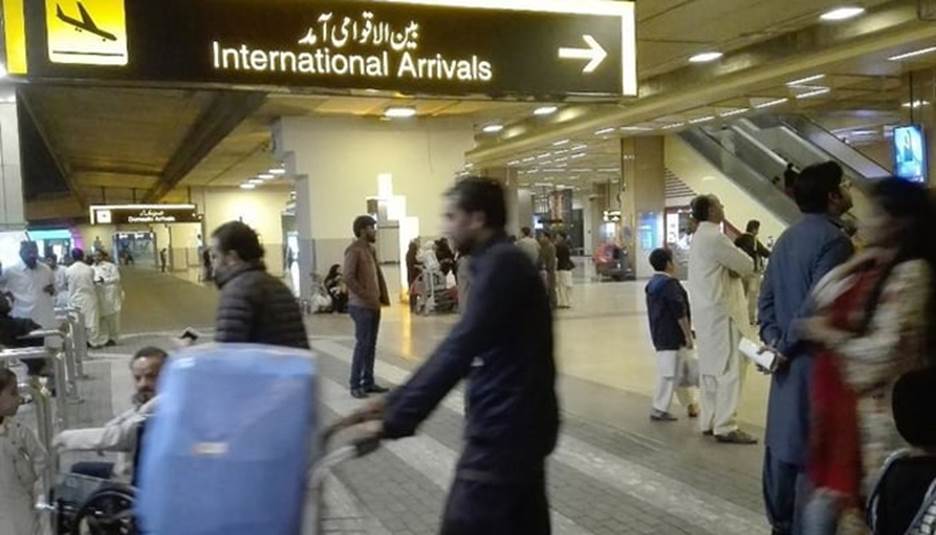
A view of the Jinnah International Airport in Karachi — AFP
In Latest Advisory UK Alerts Nationals about Potential Risks of Travel to Pakistan
London: The British government Tuesday issued new instructions for its nationals regarding travel to Pakistan.
Among other reasons, the Foreign, Commonwealth and Development Office (FCDO) has cited the risk of terrorism for its citizens residing in the country.
"Terrorists are very likely to try to carry out attacks in Pakistan. There’s a high threat of terrorism, kidnap and sectarian violence throughout the country, including the major cities of Islamabad, Rawalpindi, Lahore and Karachi," the advisory read.
It added that foreigners, and Westerners in particular, could be direct targets of such attacks, advising British citizens to steer clear of crowds, public events, political gatherings, and religious functions across Pakistan, while ensuring suitable security measures are taken.
According to its latest travel advisory, British citizens have been asked to avoid all travelling to most areas in Khyber Pakhtunkhwa province, including the capital Peshawar and districts Bajaur, Mohmand, Khyber, Orakzai, Kurram, North and South Waziristan, Charsadda, Kohat, Tank, Bannu, Lucky, Dera Ismail Khan, Swat, Buner, and Lower Dir.
The advisory also includes instructions against travel on the N45 road, from the north of the Mardan ring-road to the edge of the district of Chitral; Balochistan province, excluding the southern coast of Balochistan; the section of the N35 (or Karakoram Highway) between the Mansehra ring road and the N15/N35 Chilas interchange; and within 10 miles of the Line of Control.
The FCDO has advised against all but essential travel to "Arandu town and the road between Mirkhani and Arandu in KP; the southern coast of Balochistan, defined as the area south of (and including) the N10 motorway as well as the section of the N25 which runs from N10/N25 intersection to the Balochistan/Sindh border, including the port city of Gwadar; and areas of Sindh Province north of, and including, the city of Nawabshah."
The advisory also mentioned the regular political rallies and protests in Pakistan, which may have an "anti-Western dimension and could turn violent".
"Avoid demonstrations, large crowds of people and political events. Be alert to local news and, where possible, social media and follow the advice of local authorities and your tour company," the travel advisory stated, asking British nationals to turn away and move to a safe place if in proximity to a protest site.
Areas with high population density and inadequate security, as per the advisory, including markets, shopping malls, hotels, restaurants, hiking trails, airports, infrastructure projects, public transport, schools, and educational institutions, are prone to attacks. It added that maintaining constant vigilance in these areas and limiting exposure to higher-risk locations is crucial for British citizens.
"Some periods of the year may pose heightened risks. During holy periods/religious holidays, there is an increased potential for targeted attacks, including on Western interests and religious minorities," the FCDO advised.
Pakistan's extreme weather conditions and its vulnerability to natural disasters have also been mentioned in the advisory, with Britishers being asked to ensure precaution.
"You should avoid unnecessary exposure to direct sunlight and take precautionary measures... You should monitor the local and international weather updates from the Pakistan Meteorological Department, follow the advice of local authorities and your tour company before travelling," the advisory read.
It also mentioned the risk of earthquakes in the country, asking its citizens to familiarize themselves with safety procedures in case of such an event. – The News

